In the heart of South Africa, amidst the wilderness of the Greater Kruger National Park, a courageous band of women patrol the landscape to protect the wildlife. Meet the Black Mambas, Africa’s first all-female anti-poaching unit, who embody the spirit of empowerment and determination. Their story echoes the timeless wisdom of an African proverb: “If you educate a woman, you educate a nation.”
Day and night, the Black Mambas patrol the rugged terrain, unarmed, to monitor the wildlife, seize snares, work with the local communities and sometimes help arrest poachers. With each stride, they defy societal norms and prove that gender is not a barrier to protecting our planet’s biodiversity. Their journey is one of perseverance in the face of adversity and marginalisation. Despite encountering discrimination, scepticism and social stigma, the Black Mambas remain steadfast in their mission to protect wildlife.
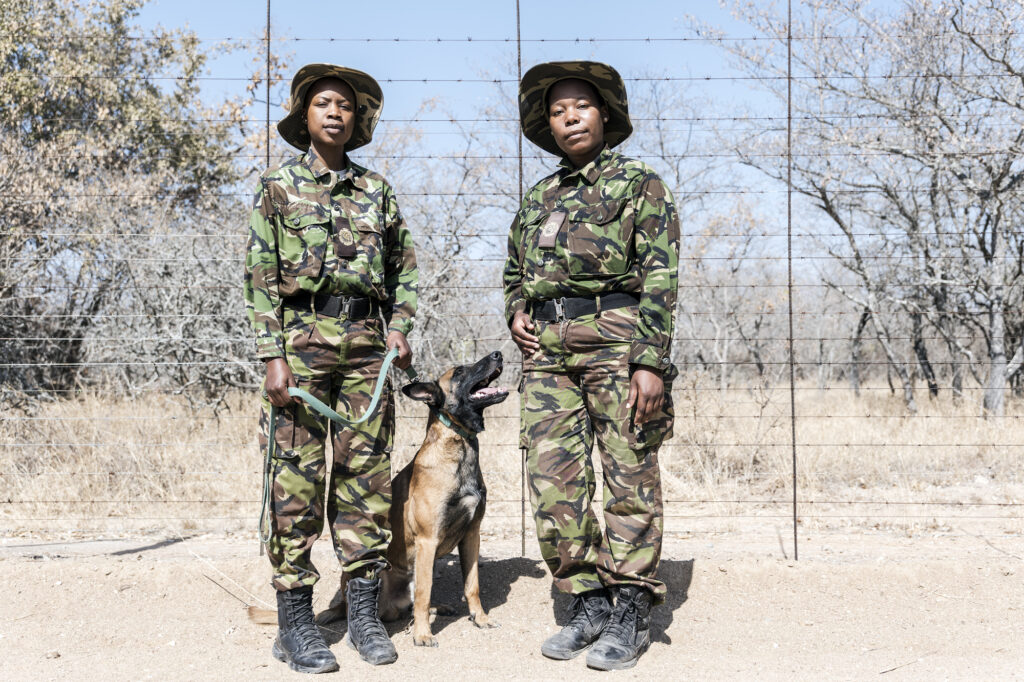
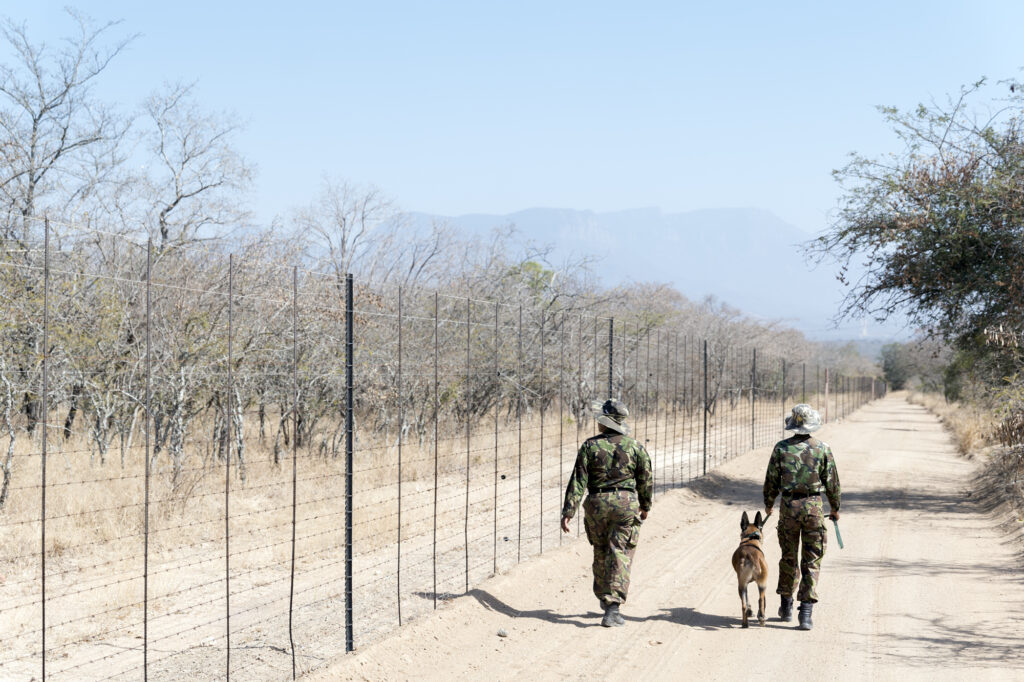
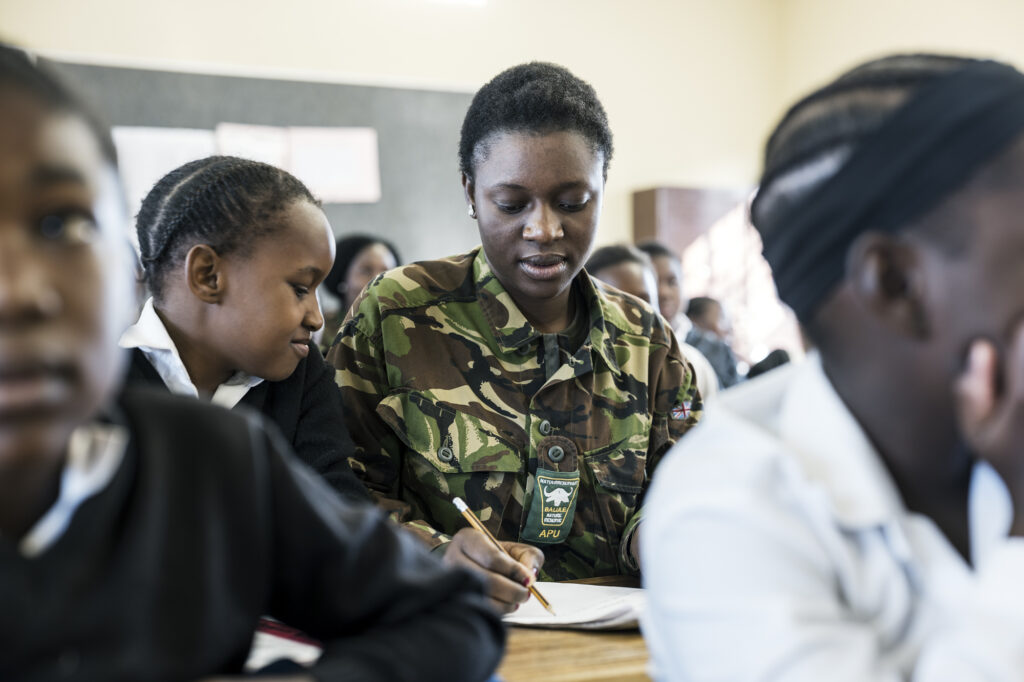
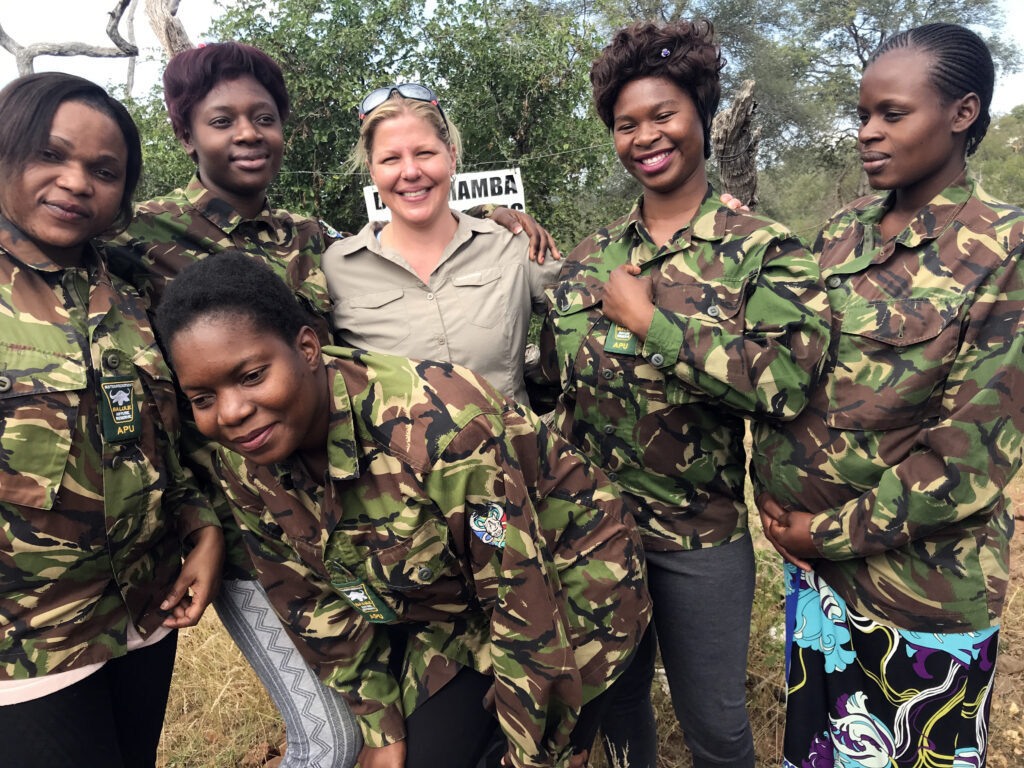
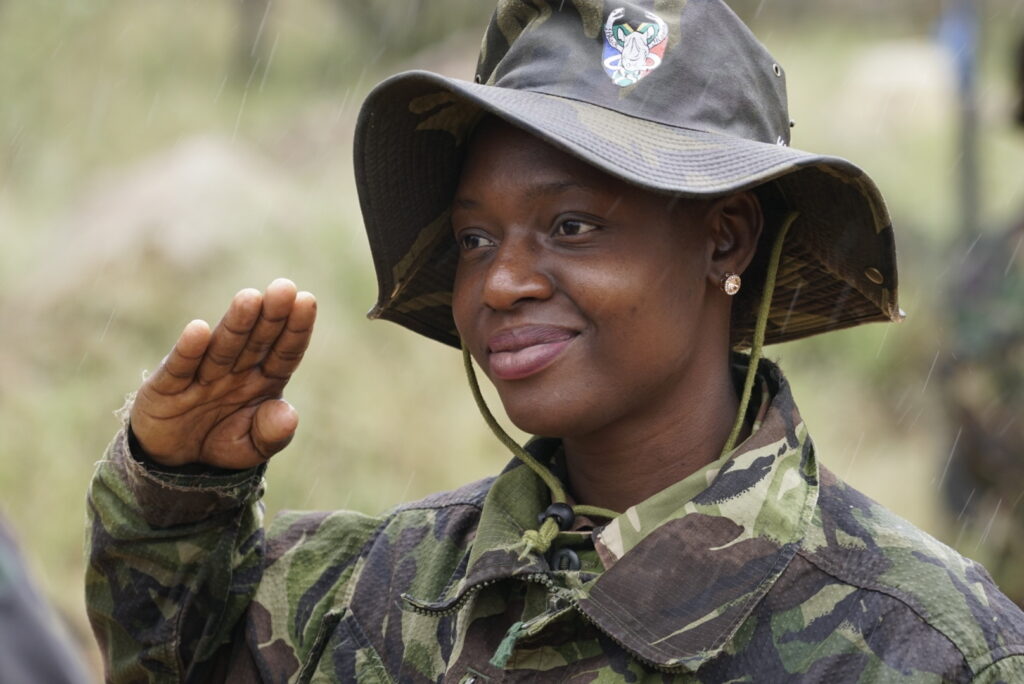
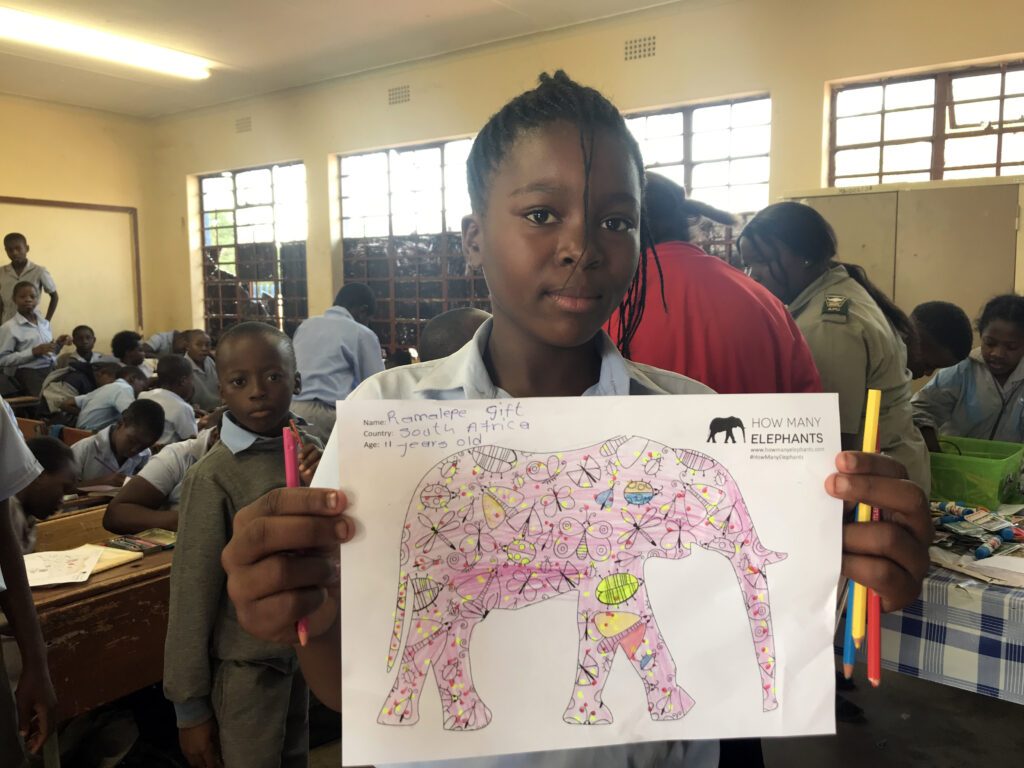
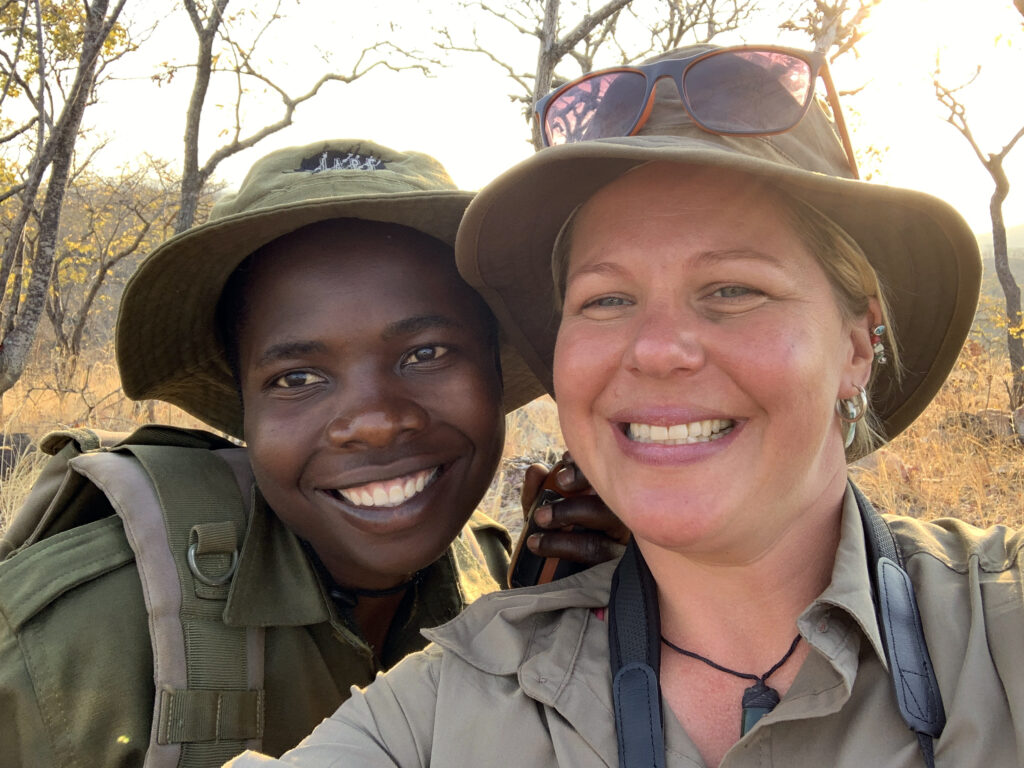
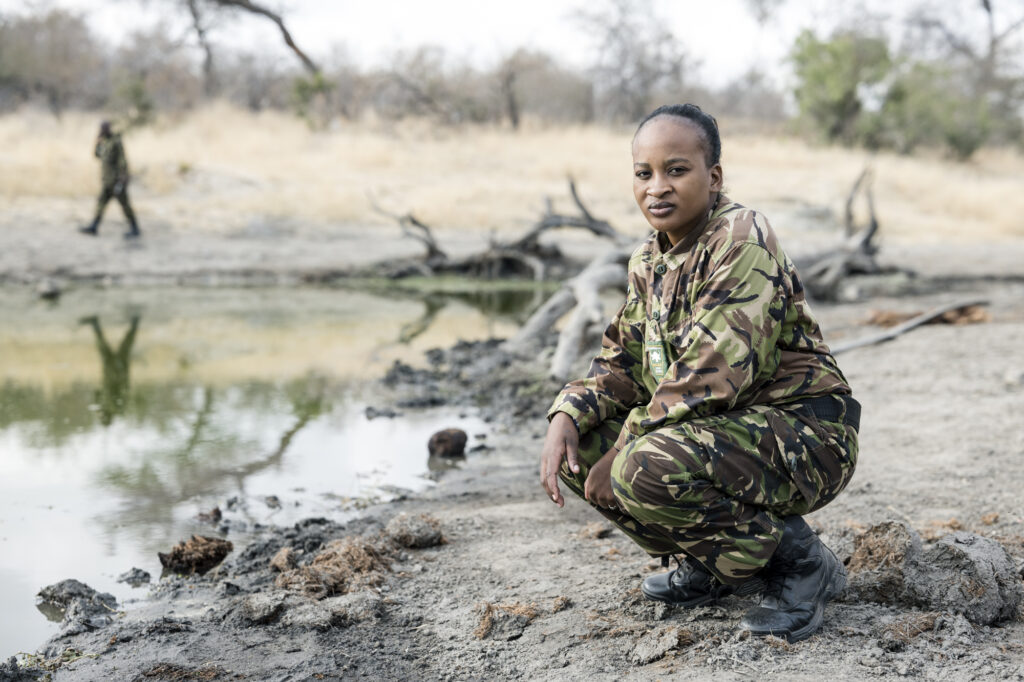
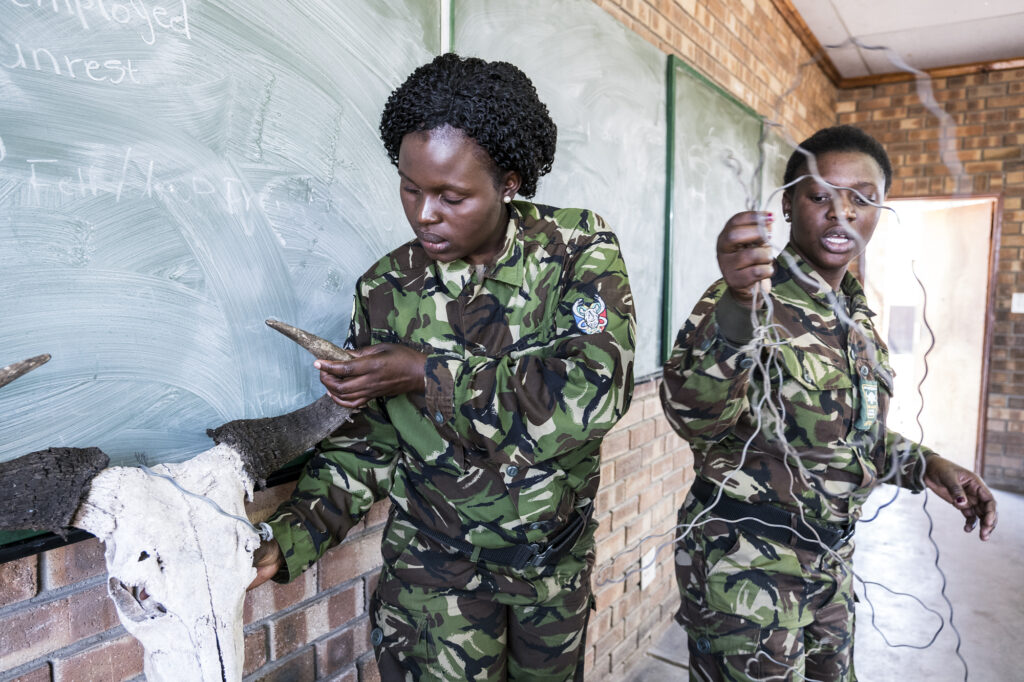
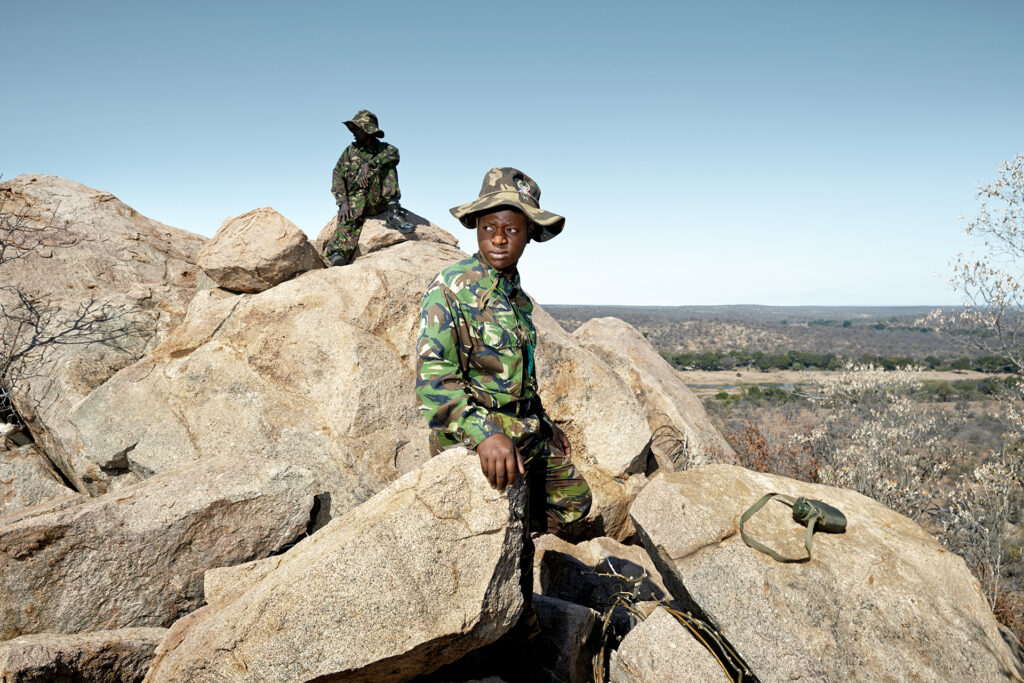
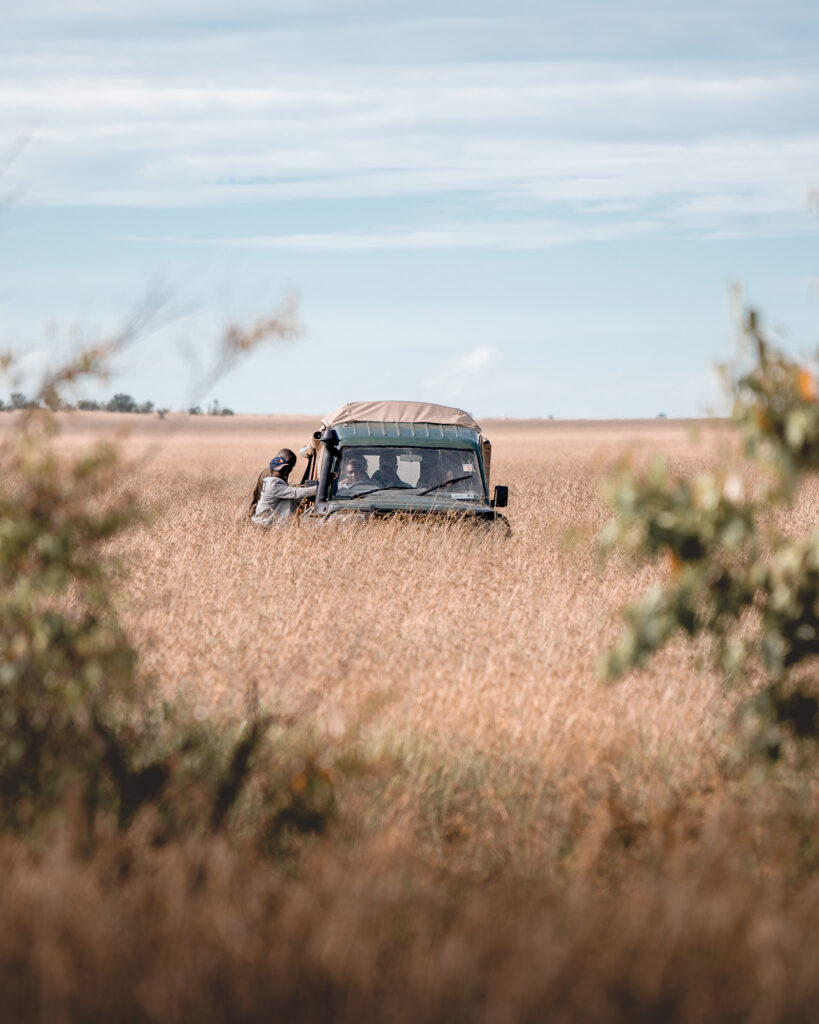
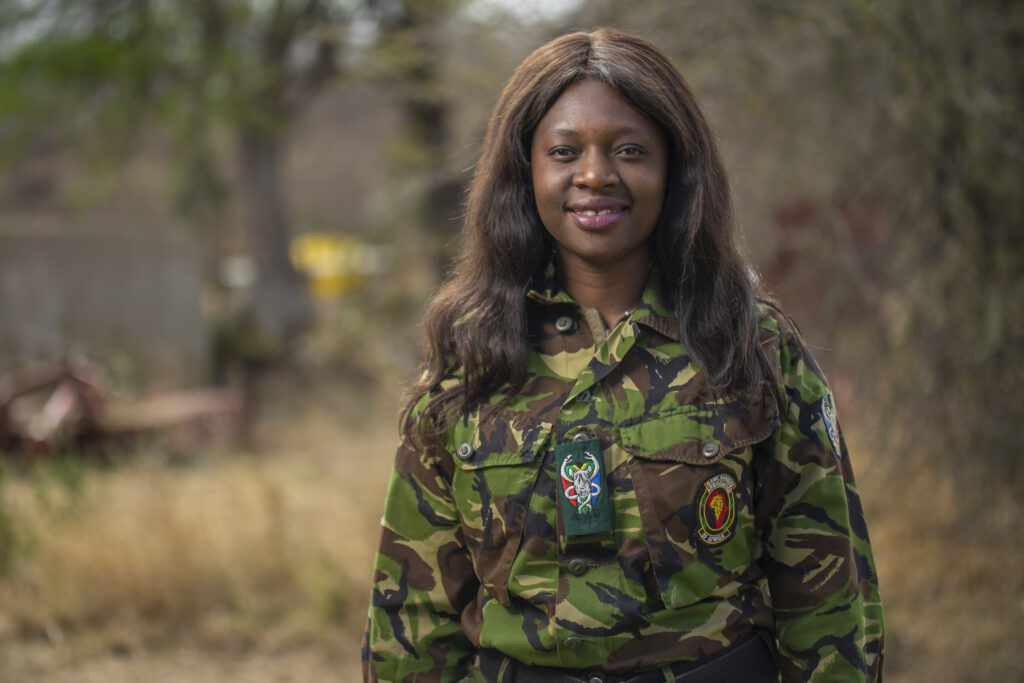
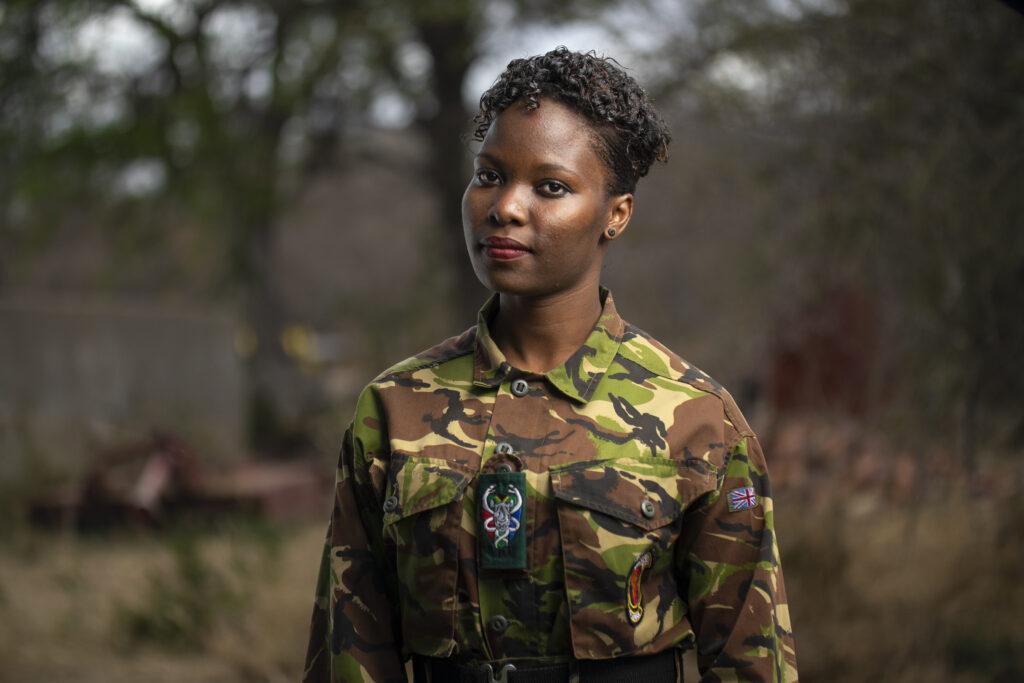
Africa experiences an annual loss of around 35,000 elephants to poaching, leaving fewer than 400,000 remaining on the continent. Other prominent threats increasing pressure on elephant populations are human-wildlife conflict, habitat loss, the closing of migratory corridors, retaliatory killing, and climate change. Elephants are keystone species that play a critical role in balancing natural ecosystems. The work of rangers is paramount in protecting them.
Over the last ten years, the Black Mambas have made an impressive impact. Olifants West Section has reduced bushmeat poaching by 89%, reduced poaching incursions by 62%, and snaring has dropped by 99%. They have worked with many bordering communities to protect and conserve their natural heritage and have empowered women to take charge of their futures.
“People said this training is for men and we couldn’t do it because we are women“
Leitah Mkhabela has been a Black Mamba Ranger since 2014, and she says, “When I started working with the Black Mambas, people feared the training we went through. People said this training is for men and we couldn’t do it because we are women. The hardest part was that even women were looking down on us. But people started to come around once the impact of our work was clear. It has helped women in my community to see themselves differently.”
As the story of the Black Mambas spreads, so does their influence. From local villages to global conservation forums, the Black Mambas’ achievements resonate far and wide, sparking a ripple effect of change and inspiring similar initiatives worldwide. Nkateko Mzimba was recently recognised in the IUCN International Ranger Awards for her dedication to protecting wildlife. She is the breadwinner in her family, supporting her mother and five siblings. She says, “My mother was worried I’d be killed by poachers working as a ranger. Now she understands what I do, and she is very proud”.
The knowledge and experience indigenous African women bring to the table extends beyond the traditional narratives of conservation and has helped disrupt the status quo, showing the capabilities and successes of females in traditionally male roles. Over the past decade, I’ve patrolled on the front line with multiple all-female and mixed ranger teams across Africa, including with the Black Mambas. I’ve seen first-hand how female rangers are impacting lives, protecting wildlife, uplifting communities, and empowering other women.
However, less than 11% of the global wildlife ranger force is female, meaning an entire gender has been marginalised in conservation and climate action conversations. Investing in gender equality has far-reaching benefits for environmental conservation, poverty reduction, and achieving the Sustainable Development Goals.
Two years ago, I launched World Female Ranger Week, a pioneering annual awareness campaign on June 23-30th to amplify female wildlife rangers’ voices in the global media. Building on the success of last year’s campaign, reaching over 500 million viewers worldwide, I have identified over 4500 female rangers in 18 African countries so far and over 5500 female rangers around the world, including in South America, Asia, and Europe. I’m collating gender-specific data about female rangers globally to identify their needs, find tangible solutions and help build effective policies to contribute towards positive outcomes for female rangers and conservation.
Sustainable tourism is a key conservation tool.
Wildlife-based tourism that is sustainable and well-managed is vital in supporting conservation efforts and provides a revenue stream to keep ranger “boots on the ground”. Rangers play a critical role in patrolling and disrupting landscapes to protect wildlife; it is often impossible for them to monitor such vast areas by themselves, and the presence of tourists often helps by providing extra eyes and ears on the ground. The lack of tourist dollars through the pandemic led to many rangers losing their jobs or having significant salary cuts. The knock-on effect was huge, as one African ranger may support up to 16 family members. At How Many Elephants NGO, we work hard to keep the funding streams going to help our partner ranger teams remain operational.
Looking forward, Wildlife Positive Travel is an exciting tour operator venture I’ve just launched. It offers unprecedented opportunities for intrepid travellers to immerse themselves with ranger teams on the frontline across Africa and globally. By experiencing conservation efforts first-hand, travellers can gain a deeper understanding of the challenges facing wildlife and the resilience of those dedicated to protecting it. The inaugural trip is in October, where a small group and I will spend one week with the Black Mambas in South Africa. We will be immersed in the daily lives of these pioneering female rangers, accompanying them on their patrols, visiting schools whose students participate in their Bush Babies Educational Programme, enjoying awe-inspiring game drives and having meaningful conversations around the campfire. You could be part of a very special and immersive experience, promising adventure and the chance to ‘give back’ and make a real difference.

